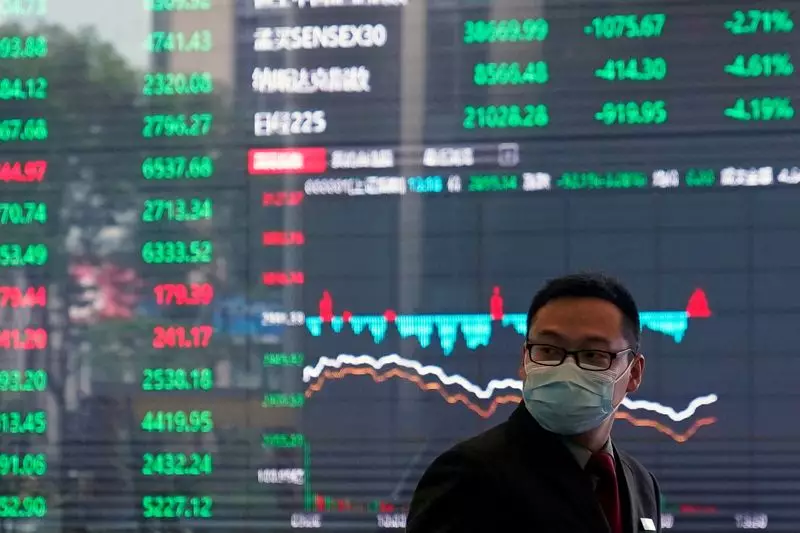The Asian stock markets saw a mixed response on Tuesday, with most stocks rising except for Chinese markets. This can be attributed to concerns over a cooling economy and headwinds from U.S. politics. The Shanghai Shenzhen CSI 300 and Shanghai Composite indexes remained flat to low, while Hong Kong’s Hang Seng index slid 1.5%. Speculation over a potential second term for former President Donald Trump played a role in dampening Chinese stocks, as Trump had a history of imposing tariffs on China during his previous term.
With increasing speculation over a second term for Trump and his nomination as the Republican presidential candidate for 2024, Asian stock markets have been on uneven ground. Trump’s tough stance on China and the possibility of a renewed trade war have added to the uncertainty surrounding Chinese stocks. The failed assassination attempt on Trump only seemed to boost his popularity, leading to a shift in market sentiment.
While Chinese markets faced challenges, broader Asian markets showed a more positive trend. South Korea’s KOSPI added 0.1%, Japan’s Nikkei 225 and TOPIX performed well with gains of 0.5% and 0.8% respectively, and India’s Nifty 50 index also pointed to a positive open. However, Australia’s ASX 200 fell 0.2% from record highs, primarily due to losses in heavyweight miner Rio Tinto Ltd.
The performance of Australian stocks, especially in the commodity sector, has been heavily influenced by global events. The disruptions faced by Rio Tinto Ltd, with a 2.3% fall in stock value after missing second-quarter iron ore shipment estimates, highlight the impact of external factors on the market. As China remains Australia’s biggest export destination, any weakness in the Chinese economy tends to weigh on Australian commodity stocks.
The ongoing Third Plenum of the Chinese Communist Party and the pressure on Beijing to release more stimulus measures are critical factors to watch in the coming days. The uncertainty surrounding global politics, especially the potential outcomes of the U.S. presidential election and its impact on trade relations, will continue to influence Asian stock markets. Investors need to remain vigilant and adaptive to navigate through these volatile times in the stock market.

